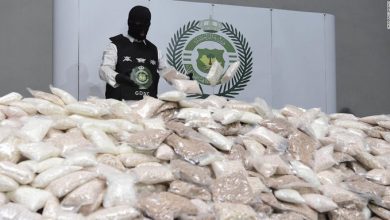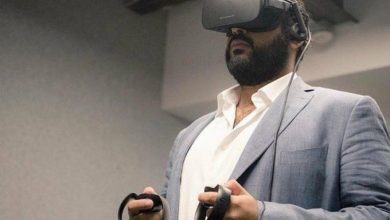Saudi Arabia: Use of Ambiguous Terrorism Law Provisions to Cement Repression
Saudi Authorities Employ Ambiguous Terrorism Law Provisions to Criminalize Peaceful Acts Unrelated to Terrorism

Saudi authorities are using vague provisions of the anti-terrorism law to criminalize a wide range of peaceful actions unrelated to terrorism, according to international human rights sources.
Human Rights Watch reported that an Egyptian doctor is serving a 10-year prison sentence in Saudi Arabia on charges of affiliation with the banned “Muslim Brotherhood” group following what appears to be an unfair trial.
The organization mentioned that Saudi authorities imprisoned Sabry Shalaby (66 years old) despite allegations that the Saudi prosecution based the charges largely on coerced confessions and apparent retribution for a work-related dispute.
According to the organization, a court initially sentenced Shalaby to 20 years in prison in August 2022, but the sentence was reduced to 10 years in December 2022 after an appeal.
The Saudi public prosecution brought charges against Shalaby after he won a lawsuit against the Saudi Ministry of Health demanding the settlement of unpaid salaries over the years. Shalaby remains arbitrarily detained as the anniversary of the original judgment approaches.
Joy Shia, Saudi and UAE researcher at Human Rights Watch, stated: “Saudi Arabia’s record in politically motivated judicial harassment raises serious concerns that Sabry Shalaby was targeted in retribution for his demand that the government pay money it owed him.”
Documents reviewed by Human Rights Watch indicate that the “Specialized Criminal Court” in Riyadh initially sentenced Shalaby to 20 years in prison under Article 34 of Saudi Arabia’s counter-terrorism law.
He was charged with “declaring his sympathy [with a terrorist entity]” and 12 years for “joining a terrorist entity” under Article 33, referring to the Muslim Brotherhood group, which Saudi Arabia designated as a terrorist organization in 2014.
The appellate court reduced the penalty for “declaring sympathy” to 10 years and dropped the other charge.
According to court documents, Shalaby, a psychiatrist, worked at the General Health Directorate in Tabuk in northwest Saudi Arabia from 2006 until 2019.
A source close to the family told Human Rights Watch that Shalaby discovered in 2016 that he was receiving a salary lower than that of a resident doctor with a bachelor’s degree rather than a doctor with an additional diploma in psychiatry.
Shalaby filed a lawsuit against the Health Directorate to recover the salary difference.
A Saudi court ruled in favor of Shalaby’s lawsuit in December 2019 and ordered the directorate to pay the salary difference for the years 2006-2019.
The directorate appealed the decision, abruptly terminated Shalaby’s employment as a sponsor, issued a final exit visa for Shalaby and his wife, obliging them to leave the country.
On January 28, 2020, just days before the appeal court’s decision on his civil case, plainclothes police officers arrived at Shalaby’s home in Al-Wajh town in Tabuk.
The source said they did not produce an arrest warrant but confiscated Shalaby’s devices, memory cards, and his wife’s passport, then detained him.
Shalaby was held incommunicado for three days, then allowed to contact his wife, but authorities instructed him not to disclose his whereabouts.
After two weeks, Shalaby called, confirming he was in Dhahban prison north of Jeddah.
The source said that a month into Shalaby’s detention without charges, he informed his family that Saudi authorities intended to charge him with expressing sympathy for the Muslim Brotherhood and voting for Mohamed Morsi, the Brotherhood’s candidate for the Egyptian presidency and later Egypt’s president, in the 2012 presidential elections.
On February 2, 2020, just before the appeal court’s decision, the court ordered the Health Directorate to compensate Shalaby only for the period of 2009-2019 due to the 10-year cap stipulated in the law. Shalaby and his family did not receive any payment.
Court documents indicate that Saudi authorities relied on confessions from two other accused individuals in Shalaby’s case, and intelligence information confirmed by Egypt’s “National Security Sector,” as well as field investigations.
The two other accused, Sayed Moustafa and Fares Ahmed, who worked at Al-Wajh hospital with Shalaby, told the court that they provided confessions implicating Shalaby in Muslim Brotherhood-related allegations under threat of solitary confinement and a ban on contacting their families.
The proceedings began in the “Specialized Criminal Court,” Saudi Arabia’s terrorism court, on January 14, 2021.
A family member said that authorities did not allow Shalaby to speak to his public defense lawyer appointed before the trial sessions, and the only time he was able to communicate with the lawyer was during the sessions.
Shalaby wrote his defense while in detention, which was read by the public defender in court. The source said Shalaby’s family and Egyptian embassy representatives were barred from attending the sentencing session.
After Shalaby’s conviction in August 2022, his family appointed a lawyer who succeeded in appealing the verdict against Shalaby.
A close family member stated that in December 2022, Shalaby submitted an additional appeal to the Supreme Court, which is still pending.
Authorities held Shalaby in solitary confinement at Dhahban prison for nine months before transferring him to Abha prison in Asir region in southwest Saudi Arabia in October 2020, where he remains.
Another source close to the family said Saudi authorities subjected Shalaby to physical and psychological harm, including harassment for talking about his case with the Ministry of Health over the phone.
The source mentioned that Shalaby was held in solitary confinement for an extended period, which may amount to torture or other cruel, inhuman, or degrading treatment or punishment.
Shalaby went on a hunger strike during solitary confinement and was transferred to the hospital for two to three weeks.
The source added that Shalaby suffers from severe back pain, asthma, and diabetes. He repeatedly requested to be referred to a neurologist for his back pain, even at his own expense, but the request was denied. Shalaby developed cataracts in prison.
Human Rights Watch has consistently documented Saudi Arabia’s flagrant misuse of its counterterrorism and cybercrime laws to severely punish individuals based solely on peaceful expression and activities, in violation of its international human rights obligations.
Shia stated: “Saudi authorities spend billions of dollars hosting major sports and entertainment events to divert attention from their dismal rights record, while Shalaby and many others are denied the basic right to a fair trial.”





